Naguib Mahfouz: (1911 – 2006) Posted by Fisal on Jun 3, 2015 in Arabic Language, Culture, Vocabulary
Ahlan Arabic lovers! Today, I am going to tell you the story of a great Egyptian novelist روائــي, writer كــاتــب and philosopher فــيــلــســوف; Naguib Mahfouz نــجــيــب مــحــفــوظ. Yes, he is the only Arab Nobel Laureate for literature الأدب in 1988. To get more information about other Arab Nobel Laureates, click here. His literary works are classified under the themes of realism الــواقــعــيــة and existentialism الــوجــوديــة. During his long literary career, he published 34 novels, over 350 short stories, dozens of movie scripts, and five plays. Many of his works have been turned into films in Egypt and outside. Also, many of his works have been translated into over 30 languages.
His Early Life
Naguib Mahfouz was born on 11th December, 1911 to a middle-class family in Al-Gamaliyah Quarter حــي الــجــمــالــيــة , in old Cairo. His father, Abdel-Aziz Ibrahim Ahmad El-Basha, who was a minor pubic employee, gave him the compound name of Naguib Mahfouz for some reason. The reason for this compound name was to honor the physician Naguib Pasha Mahfouz who delivered him. Mahfouz’s mother; Fatimah was the daughter of Mustafa Qasheesha; an Al-Azhar Sheikh. She used to take him to different museums. This also affected his personality and the Egyptian History became a major theme in his literary works later on.
Naguib Mahfouz was the youngest child in the family. He had five brothers and two sisters. The Egyptian Revolution of 1919 happened when Mahfouz was just seven years old. However, it had a great influence on his character and this appeared in some of his later works.
Mahfouz’s family moved to many quarters of old Cairo like Al-Abbasiyah الــعــبــاســيــة, Al-Ghoriyah الــغــوريــة and Al-Hussein الحــســيــن. The life in such historic and culturally-rich places had its influence on Mahfouz, too. This influence enriched his literary career later and gave him deep insight into human nature.
Like most middle-class families at the time, Mahfouz’s family was a devoted Muslim family. He had a very strict Islamic upbringing. Later, in an interview, Mahfouz commented on this saying; “You would never have thought that an artist would emerge from that family”.
https://www.youtube.com/watch?v=joMefL8Rsxs
His Education and Civil Service
Naguib Mahfouz finished his High School and then joined King Fouad I University (Cairo University now) where he studied philosophy. He graduated in 1934. In 1936 and after two years of hard work on his master degree, he decided to quit it and become a professional writer. He used to read a lot to Egyptian and international writers. He was mostly influenced by Taha Hussein and Abbas Al-Aqqad. He says about his early passion for writing; “I was reading a lot of books I admired, and thought that I would like to write something like that someday”.
https://www.youtube.com/watch?v=32ad7HAknTg
Mahfouz followed in the footsteps of his father and joined the Egyptian civil service until he retired in 1971. He served in the Ministry of Mortmain Endowments وزارة الأوقــاف, then as Director of Censorship in the Bureau of Art مــديــراً لــلــرقــابــة عــلــى الــمــصــنــفــات الــفــنــيــة, as Director of the Foundation for the Support of the Cinema مــديــراً لــمــؤســســة دعــم الــســيــنــمــا, and finally as a Consultant in the Ministry of Culture مــســتــشــاراً فــي وزارة الــثــقــافــة.
https://www.youtube.com/watch?v=Xc04ixvqH0I
His Literary Career
Mahfouz was not only a civil servant with a government job. He worked as a journalist at some magazines and newspapers including Al-Ahram. He says about himself; “I was a government employee in the morning and a writer in the evening”. He started writing short stories in 1936. He got his first novels about the Pharaonic history published. His talent for writing emerged in his famous Trilogy or (الــثــُــلاثــيــة A’thula’thiyah) that consisted of a series of three novels that he finished in 1952 and was not published until 1956.
https://www.youtube.com/watch?v=3vwcyIl_eFI
His literary works reflect the life of the middle and poor class in the Egyptian society in general and in the Cairo quarters. He expressed their fears, dreams, anxiety and doubts towards the fatal cases and threats. He precisely depicted the life of the Egyptian family in its internal relationships and the extensions of these relationships to the external society. He says; “Events at home, at work, in the street – these are the bases of a story”. These works of Mahfouz had that live realism. However, in his later works, one can easily see a shift to existentialism. He says; “The writer interweaves a story with his own doubts, questions and values. That is art”.
Religious and Political Views
Mahfouz had a good understanding of Islam and its moderate message. He publicly refused all kinds of extremism. This is clear in most of his works that criticized radical extremists. He attacked the many famous movements that appeared in the Middle East including Khomeini and the Muslim Brotherhood. One of his novels; ‘Children of Gebelawi’ 1959, (also known as ‘Children of Our Alley’ أولاد حـارتــنــا), caused huge debate and was not published in Egypt until 2006. Some people did not like the novel as they saw it full of blasphemy through the personification of God. Mahfouz says about this misunderstanding of some literary works; “an allegory is not meant to be taken literally, there is a great lack of comprehension on the part of some readers”. This book could have cost Mahfouz his life as radicals threatened him. He was given police protection. In 1994, some extremists succeeded in attacking him when he was 82 years old. They stabbed him in his neck but he survived. He criticized extremism and religious fanaticism saying; “Today’s interpretations of religion are often backward and contradict the needs of civilization”. He tended to like Sufism.
Mahfouz was well-aware of the role religion plays in the Egyptian society. He refused all kinds of misuse of this religious sensitivity. He says; “If you want to move people, you look for a point of sensitivity, and in Egypt, noting moves people as much as religion”.
https://www.youtube.com/watch?v=QdRqQUthknQ
Mahfouz believed in freedom of expression, justice and equality. He was more than a social reformer. In his novels, he criticized the society for superstitious thinking. He criticized the government for its tyranny and lack of democracy. He says; “In Egypt today, most people are concerned with getting bread to eat. Only some of the educated understand how democracy works”.
His Personal Life
Naguib Mahfouz did not marry until the age of 43. He believed that marriage would impede the progress of his literary career. He says about this; “I had the impression that married life would take up all my time. I saw myself drowning in visits and parties. No freedom”. However, in 1954, he married an Egyptian woman called Atiya and had two daughters; Fatimah and Umm Kulthoum. He avoided exposure to social life and media and preferred to write in peace. He rested in peace on August 30, 2006.
*****
Check us back soon
Peace ســَـــلام /Salam/

Build vocabulary, practice pronunciation, and more with Transparent Language Online. Available anytime, anywhere, on any device.
About the Author: Fisal
Well, I was born near the city of Rasheed or Rosetta, Egypt. Yes, the city where the Rosetta Stone was discovered. It is a small city on the north of Egypt where the Nile meets the Mediterranean. I am a Teacher of EFL.



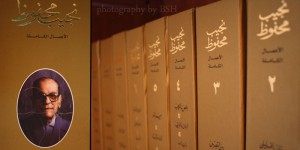
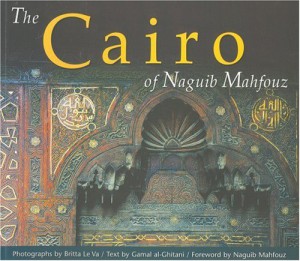
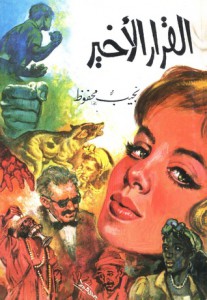
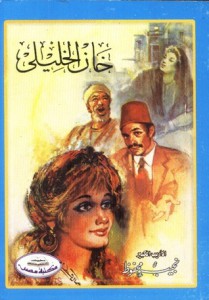
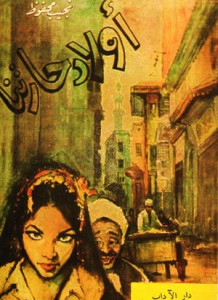
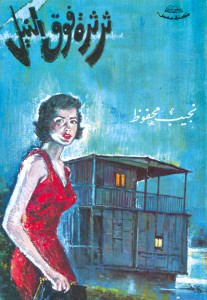
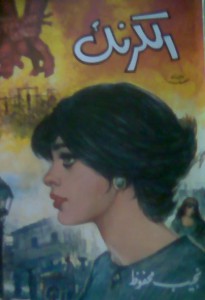

Comments:
userscripts:
I conceive you have mentioned some very interesting details , regards for the post.